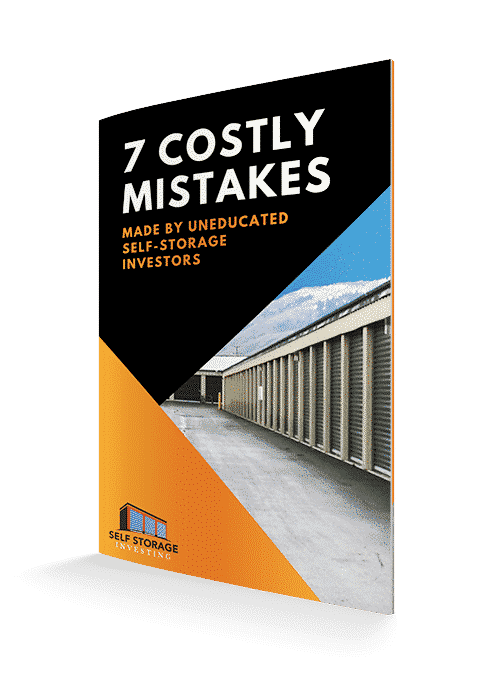Real estate investing is a powerful method to acquire wealth and achieve financial freedom. Owning and buying real estate is an investment strategy that can be both lucrative and satisfying. One commonly asked question is how to take the initial step in real estate investing with no or very little money – which really is possible! Investing in real estate with little to no money is more realistic than people might think.
There are many financing methods to get started with little or no cash as a real estate investor. In addition to these financing methods, a more general focus on property value, credit score, and other aspects makes it possible for investors with little or no money to get started in real estate. Of course, knowing how to invest in real estate with no money is different from actually doing it.
Why Real Estate Investing Results in Acquiring Wealth
Real estate is a property in the form of land and anything permanently attached to it (natural/human-made), such as houses, other structures, etc. Real estate is an excellent investment with many benefits. Investing in real estate is a tried-and-true method to create considerable wealth.
Real estate investing can be very profitable and is considered one of the best ways to become rich. There are several methods through which investors could profit from real estate, including:
- Cash flow (rental money collected upon paying all expenses)
- Appreciation (increase in property value)
- Forced equity (wealth created when investors rework the property to incense its value)
- Tax advantages
- Leverage
How to Invest in Real Estate With Little Money or Bad Credit
It takes money to make money, and if you have enough cash, it is undoubtedly easier to get started in real estate. But the truth is that, in all businesses, it is quite possible to get started with very little money. The most significant thing you need to know is how to invest in properties with the right people at your side and the fact that you don’t really require endless cash reserves of your own to close a deal.
There are several techniques that can assist investors in making profits from real estate with little or no money. They include investing a lot of time and energy, passive investment, and buying a property directly, as well as several more creative ownership methods.
Invest Substantial Time and Energy
Any investor could probably get started with an active real estate technique, such as bird-dogging, wholesaling, becoming a real estate agent, finding tenants for rental owners, etc. They all need to put in substantial time and energy as well as becoming capable of recognizing good investment opportunities and going after them using other people’s capital.
Bird-Dogging
This strategy includes finding good real estate deals for other, more experienced investors. It is called bird-dogging because individuals must sniff out and point to deals like bird-hunting dogs. A bird dog needs to do two things very well: finding good deals and finding several active investor buyers with enough money.
Wholesaling
This technique is certainly the easiest way for new, inexperienced investors to make quick money in real estate. Many real estate investors utilize wholesaling just to build capital. They earn income off the sale by simply charging a fee.
Real estate wholesaling consists of finding deeply discounted and distressed properties, negotiating a deal with the property owner, putting the property under contract, transferring the contract to a final buyer, assigning the contract to a prospective buyer, and getting paid for facilitating the deal. Doing so needs no money at all.
Becoming a Real Estate Agent
This technique is a great way to learn about real estate transactions and the overall real estate market. It can be one’s part-time or full-time job and can be lucrative.

Acting as a Self-Storage Leasing Agent
Individuals can also consider becoming leasing agents. A leasing agent helps to match a tenant with a particular rental unit to earn money while learning the business and taking a very little personal financial risk.
Nowadays, many people need to store their excess household items, so they look for self-storage units. Self-storage units are small storage spaces that can be rented out to a person or company. Self-storage companies lease a variety of unit sizes to residential and business tenants; these facilities are recession-resistant and generally highly profitable for investors.
A leasing agent can help people looking for self-storage units find the units that fit their needs. Because of the growing demand for self-storage in the U.S., leasing agents can make a lot of money.
Passive Investment
Any person can invest passively/indirectly in real estate through real estate investment trusts (REITs) or real estate crowdfunding. Utilizing this technique, it is possible to start a business with very little money.
Real Estate Investment Trusts
Real estate investment trusts (REITs) are truly passive investments that allow interested parties to gather their money together in order to invest in a portfolio of properties that they may have no access to individually. When investors buy stock in a REIT, they own a small percentage of many income-producing commercial properties. A team of managers selects and scrutinizes the investments within the REIT for a fee.
REITs make money by leasing, renting, or selling properties they own. One of the advantages of REITs is that their shares are much more liquid (i.e., investors can sell them quickly whenever they want to raise cash). They also offer a generous and relatively low-risk income. They let investors who don’t need/want the regular income automatically reinvest their revenue to grow their investment further.
Real Estate Crowdfunding
Real estate crowdfunding, a relatively new entry into the real estate investing world, makes it possible for groups of property investors to pool their money together with other investors where every party owns a small share. It also gives investors an equity stake.
This crowdfunded investment strategy can be utilized on rental properties (usually large multi-unit properties) or loans to other real estate investors (i.e., hard money loans).
Buying a Property Directly
The owner-occupant strategies make it possible for investors to buy property directly. These techniques will allow investors to obtain owner occupant loans.
House Hacking
Buying a multi-unit home allows investors to be residents/landlords simultaneously. It is possible to get an owner-occupant loan to buy a rental property (provided you rent out part of it). This successful real estate investment technique is referred to as house hacking. It basically means investors generate income by renting out their primary residence.
A classic house hack moves into a small multi-unit property and rents out the units that nobody lives in. This way, the rent generated might help pay for the mortgage, allowing the owner to potentially live mortgage-free. Those who live in single-family homes, on the other hand, may elect to rent extra bedrooms for income.
Federally-assisted loan programs make it possible for investors to obtain owner-occupant financing to buy a property. These programs are among the best methods to buy rental properties with little or no money. Here are a few loan programs (with very little down) that investors can utilize for house hacking:
FHA loans
FHA loans can decrease down payments. Also, they can cover more than 90% of the purchase price. Using FHA loans, investors can finance a duplex/triplex with only a 3.5% down payment as long as they live in one of the units.
VA loans
VA loans (0% down for veterans), another feasible property financing source, is available for a property buyer who is a military veteran.
USDA loans
USDA loans that offer low-interest rates (0% down in rural areas) with no down payment are perfect for those interested in investing in real estate with no money down in rural or suburban areas.
More Creative Financing Strategies
There are some creative financing strategies to control or buy real estate. Because investors aren’t applying for bank loans, a private individual or seller may be less strict with bad credit.
Lease Options
Another proven technique to invest in real estate with no money is through what is known as a lease with the option to buy. When investors own a property lease option, they can rent out a property without buying it. At first, investors rent a property and gain permission from the owner to sublease the extra bedrooms/units to other tenants. They can also try to negotiate what is called an option to purchase and agree to ultimately buy the property from the landlord.
Under the lease option, the property owner charges the buyer a monthly/annual premium in higher rental payments. A portion of this extra rental fee will then be directed toward the purchase price.
Credit Partnership
Three things are required to put together a real estate deal: knowledge, hustle, and money. No one can provide all of them. Investors can compensate for the shortages by forming partnerships/joint ventures.
Some people are big on ideas but don’t have enough credit, so bringing in a partner who provides the funding and allows them to do the managing might be an attractive option. In other words, the partnership with someone who has excellent credit to secure the funding for the deals is an effective investment strategy.
Seller Financing
Another hassle-free way to acquire a property with no money down is with help from the seller. Seller financing, known as a purchase-money mortgage, is an approach where the seller can become the bank, especially when real estate investors cannot qualify for a mortgage through traditional lenders.
Instead of getting a bank loan, the seller lets the investor purchase the property over time using monthly installments. Investors could offer to make higher monthly payments instead of a down payment. This technique works incredibly well for properties that are wholly owned/paid off.
Private Loan
Private investment loans are provided by private money lenders. They are individuals seeking returns on their investment. Private money lenders can be anyone from a structured lender to a friend, business partner, relative, or acquaintance.
The two parties agree on the legal terms of the loan. Private lenders do not act according to a certain set of rules. So, interest, repayment terms, and everything else are up for negotiation. One big disadvantage of this method is that private lenders often charge high-interest rates in return.
Hard Money Loan
Hard money lenders are private individuals or businesses with certain investment criteria who offer short-term loans that are supported by real estate. Hard money lenders focus on an investment property’s value when lending, not the investor’s financial qualifications.
Through hard money loans, investors can receive the funds they need very quickly. Similar to private money loans, hard money investment loans can require no money down. While these positives are interesting, there are disadvantages to hard money loans. The most important disadvantage is that hard money lenders often require higher fees/interest rates compared to private lenders.
Create a Home Equity Line of Credit
Using a home equity line of credit known as a HELOC on an investor’s primary residence or other investment properties is one of real estate investment’s most creative strategies for existing homeowners. The difference between the home`s actual worth and what the owner owes on it is called equity. Homeowners may use the equity in that home as a down payment on their next place. Many banks will give them a HELOC, which they can then utilize for real estate investing.
A typical HELOC will create a line of cash in hand for about 70-80% of the current equity in their currently owned property that is their primary residence. However, something to note is that the HELOC rate is variable, meaning it goes up and down. Investors should keep in mind HELOC is technically and essentially a second mortgage on their property.

Real Estate Investment Group (REIG)
Many realize it is possible to acquire wealth by investing in real estate, but very few have the capital to make it happen. The solution is joining a real estate investment group.
What Is a Real Estate Investment Group?
Real estate investment groups are formed by individuals who are solely focused on real estate investment. However, these groups are distinguishable from formally established real estate investment trusts. Real estate investment group members work together to purchase properties they otherwise could not afford. These groups often buy and then renovate and sell/finance properties.
Investment groups can be informal, but they are often organized as partnerships (a business owned by two or more people who share losses, profits, debts, etc.).
An REIG may have a wide variety of industry professionals, including accountants, attorneys, agents, lenders, brokers, wholesalers, bankers, and people experienced in or new to real estate investing.
The purpose of an REIG is to bring real estate industry experts, investors, and real estate professionals together to learn, network, and do business.
Pros of Joining Real Estate Investment Groups
- Group members benefit from collective knowledge.
- The group is committed to educating itself on an ongoing basis.
- Group members have fewer problems advertising their service/business.
- Members are able to purchase properties much easier by pooling their resources.
- Members are able to network with fellow professionals in the real estate industry.
Cons of Joining Real Estate Investment Groups
- Emotions can get in the way of the right decisions.
- Some groups have annual membership fees.
- Some groups lack flexibility.
- Members may not be able to easily get their money out if they need to do so.
- Some groups don’t have many members and don’t provide their members with productive networking opportunities.
Conclusion
One of the best things about real estate investment is that it is open to everyone. Not all investors start with a healthy financial situation. Perhaps they have some money saved, and they have lousy credit from past financial challenges. Having cash is not a necessity to make money in real estate investing, but it makes the process easier.
There is no single best way to start investing in real estate. Hence, you should find the method that best fits your budget and the amount of time you can set aside to manage the investment. If investors combine a suitable method that works for them, together with persistence, energy, and a lot of hustle, it is possible to make healthy gains in real estate investing. Investors should keep in mind that saving money and building up their credit score should be absolute priorities as they advance in their careers.
If you want to learn more about real estate investment, especially in the profitable self-storage sector, we will teach you all you need to know about investing in real estate. Regardless of how much money you have to invest, we can help you profit with a smart investment!






